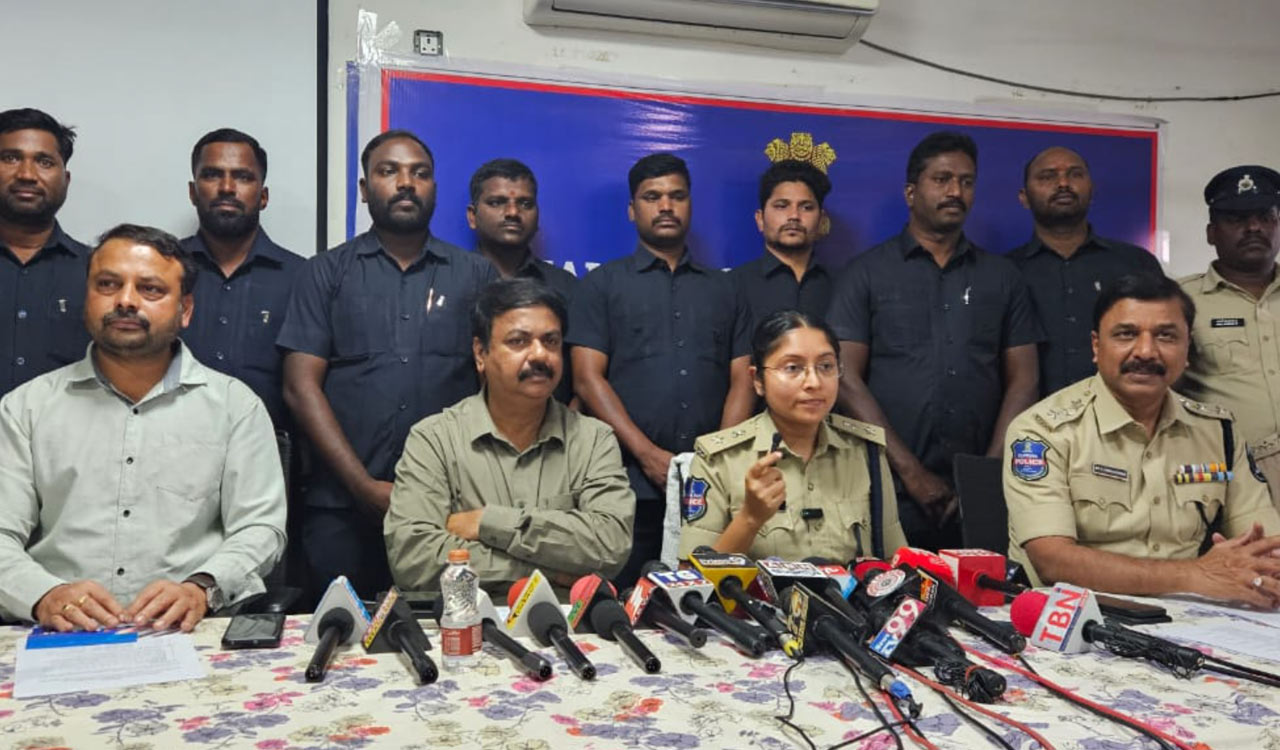Opinion: Social networks, a new hope for rural childless
A multi-pronged approach such as combining offline and online networks can create a robust support system

By Sucharita Pujari
Involuntary childlessness is a deeply personal yet socially significant issue, particularly in rural India, where cultural and societal norms amplify the stigma associated with it. For many couples, the inability to conceive becomes a source of emotional distress, marital strain and social alienation. In such contexts, social networks — both offline and online — hold immense potential as tools of positive reinforcement, offering emotional, psychological and even material support.
Socio-Cultural Context
In rural communities, parenthood is often regarded as a fundamental milestone, closely tied to one’s social status and identity. Childlessness, however, is heavily stigmatised, and couples — particularly women — are subjected to judgment and exclusion. Women frequently bear the brunt of societal pressure, being blamed and ostracised even when medical causes for childlessness lie with either partner or remain undiagnosed.
This social stigma exacerbates the emotional toll, further compounded by limited access to healthcare and infertility treatments. Cultural taboos surrounding infertility often prevent open discussions, leaving couples isolated in their struggles. Additionally, financial constraints, lack of awareness, and insufficient education about infertility lead many rural couples to delay or avoid seeking medical intervention altogether. As a result, they often feel as though they are suffering alone, deepening their vulnerability.
Amid these challenges, the emergence of social networks provides a glimmer of hope. By creating safe spaces for dialogue and support, these networks empower couples to navigate the emotional and social challenges of involuntary childlessness more effectively.
Offline Social Networks
Family and Community Groups
Traditionally, family and close-knit community groups have been the primary source of support in rural India. However, their influence can be a double-edged sword. On one hand, they can provide emotional and logistical support; on the other, they may perpetuate harmful stereotypes and reinforce the stigma surrounding childlessness. To transform these offline networks into agents of positive change, targeted interventions are necessary:
• Awareness programmes: Educating families and communities about the medical and psychological aspects of infertility can reduce blame and foster empathy.
• Support groups: Community-based support groups for childless couples can provide platforms for sharing experiences and offering mutual encouragement.
• Involvement of community leaders: Religious and social leaders wield significant influence in rural areas. Engaging them in challenging stigma and promoting acceptance can yield significant results.
Women’s Self-Help Groups
Already widespread in rural India, they can play a transformative role for childless women. They can provide:
• Economic empowerment: By engaging in income-generating activities, women can reclaim their self-worth and reduce dependence on societal approval tied to motherhood.
• Emotional support: SHGs can serve as safe spaces where women can openly discuss their struggles and find solidarity.
Through such forums, conversations around infertility can be normalised, dispelling myths and fostering empathy within communities.
Dedicated online forums can collaborate with healthcare professionals, influencers and local leaders to promote a fact-based understanding of infertility, empowering couples to make informed decisions
Breaking the Isolation
The proliferation of mobile phones and internet connectivity in rural India has opened new avenues for social interaction. Online platforms, including social media, forums and messaging apps, complement traditional support systems in significant ways.
For many childless couples, the fear of judgment prevents them from seeking support within their immediate social circles. Online platforms provide a layer of anonymity, allowing couples to share their feelings and seek advice without fear of stigmatisation. Dedicated online forums can collaborate with healthcare professionals, influencers and local leaders to promote a fact-based understanding of infertility, empowering couples to make informed decisions.
Access to Information
A lack of awareness about the causes of infertility and available treatments is a significant challenge for rural couples. Social networks can bridge this gap by:
• Sharing educational content: Healthcare providers and NGOs can use platforms like WhatsApp, Facebook and YouTube to disseminate information in local languages.
• Connecting to experts: Telemedicine and online consultations can link rural couples with specialists, reducing the need for travel and associated costs.
• Highlighting success stories: Stories of couples who have successfully navigated infertility can inspire hope and encourage others to seek help.
Advocacy campaigns targeting policymakers can draw attention to the need for better infertility treatment facilities in rural areas. Hashtag movements and viral campaigns can amplify the voices of childless couples and challenge societal norms.
Leveraging Social Networks
While the potential of social networks is immense, several challenges must be addressed to ensure their effective use:
• Digital divide: Despite increasing internet penetration, many rural areas still lack reliable connectivity and digital literacy remains low, especially among women.
• Misinformation: Online platforms are rife with myths and unverified remedies for infertility. Ensuring the credibility of shared information is critical.
• Privacy concerns: Couples may hesitate to participate in online groups due to fears of exposure and judgment.
• Cultural sensitivity: Interventions must respect local traditions and beliefs to be effective.
Effective Implementation
To harness the potential of social networks, a multi-pronged approach is required such as combining offline and online networks can create a robust support system. For instance, healthcare workers and SHG members can be trained to facilitate online engagement, ensuring that couples who lack digital access are not left behind.
Innovative solutions, such as voice-based apps and vernacular content, can be used to make online platforms more accessible to rural populations. Partnerships with telecom providers can ensure affordable data plans and improved connectivity in underserved areas.
To address privacy concerns, online platforms must prioritise user anonymity and data security. Establishing helplines and offering one-on-one consultations can further reassure hesitant participants. Collaboration with stakeholders is equally important. Healthcare providers, NGOs, and government agencies must work together to create and promote supportive networks.
Way Forward
Despite their potential, social networks face challenges in reaching rural couples effectively. Limited digital literacy, poor internet connectivity and cultural taboos can hinder participation. Additionally, not all information shared online is accurate or helpful, underscoring the need for credible and moderated platforms.
To address these challenges, a multifaceted approach is essential. Governments and NGOs should enhance digital accessibility by improving internet infrastructure and promoting digital literacy in rural areas. Trust can be cultivated by engaging local champions, such as community leaders and health workers, to act as intermediaries between rural populations and social networks. Finally, campaigns should adopt inclusive narratives that respect and reflect the diverse cultural contexts of rural communities, offering solutions that are both relevant and sensitive to their unique needs.
Involuntary childlessness is a multifaceted issue that demands a nuanced and compassionate approach. Social networks, when leveraged effectively, can serve as powerful tools for positive reinforcement, providing emotional support, knowledge, and resources to rural couples. By fostering solidarity and breaking down barriers, these networks can transform the narrative around infertility, enabling couples to find hope, resilience, and acceptance.
As society continues to evolve, it is imperative that we harness the potential of social networks to create inclusive communities where no couple feels isolated or judged for circumstances beyond their control. Through collective action and empathy, we can ensure that the pain of childlessness is met with understanding and support, rather than stigma and silence.

(The author is Assistant Professor, Centre for Post Graduate Studies & Distance Education, School of Development Studies, National Institute of Rural Development & Panchayati Raj, Hyderabad)
Related News
-
Grand celebrations mark KCR’s 72nd birthday as thousands flock to Erravelli
2 mins ago -
TG EAPCET 2028 to follow revamped Intermediate syllabus
5 mins ago -
Grand Mufti dismisses Muslim security concerns after meeting PM Modi
14 mins ago -
Telangana High Court grants conditional bail to movie piracy accused ‘Ibomma’ Ravi
18 mins ago -
Telangana HC directs govt to provide details on pending tuition fee reimbursement
22 mins ago -
Telangana HC halts Ibrahimpatnam Municipal Council election process
28 mins ago -
Telangana government cuts fees for private engineering colleges
31 mins ago -
BRS leaders approach SEC seeking action against Congress atrocities in civic polls
33 mins ago




